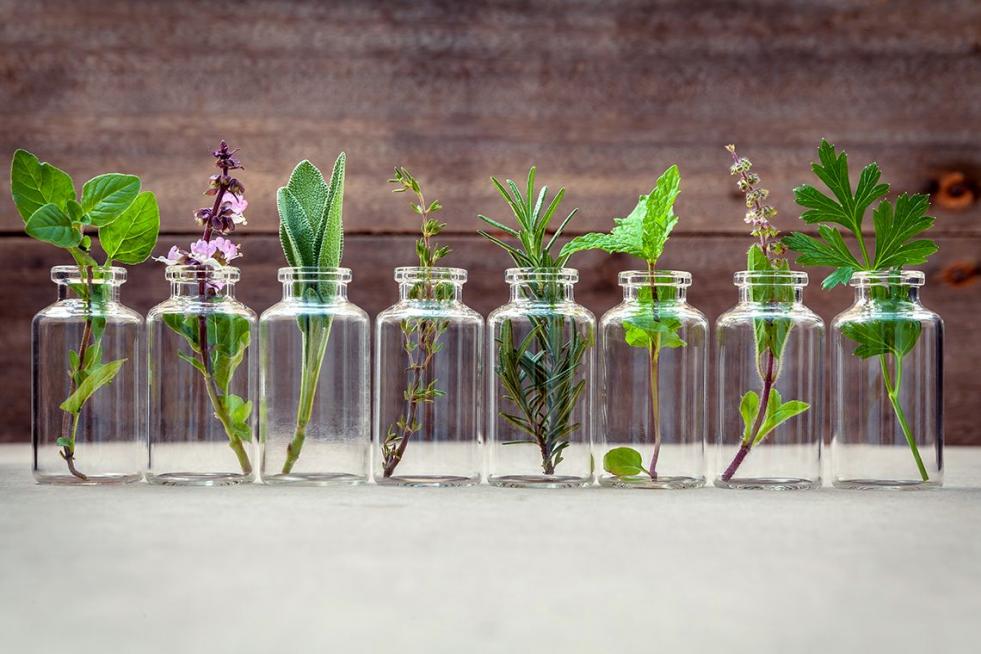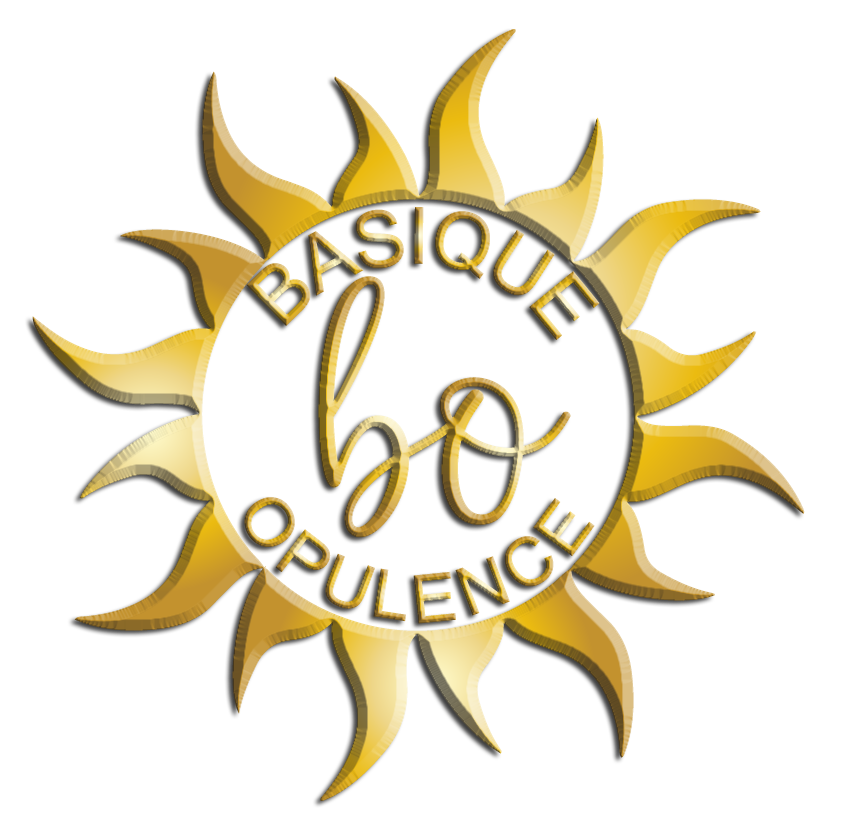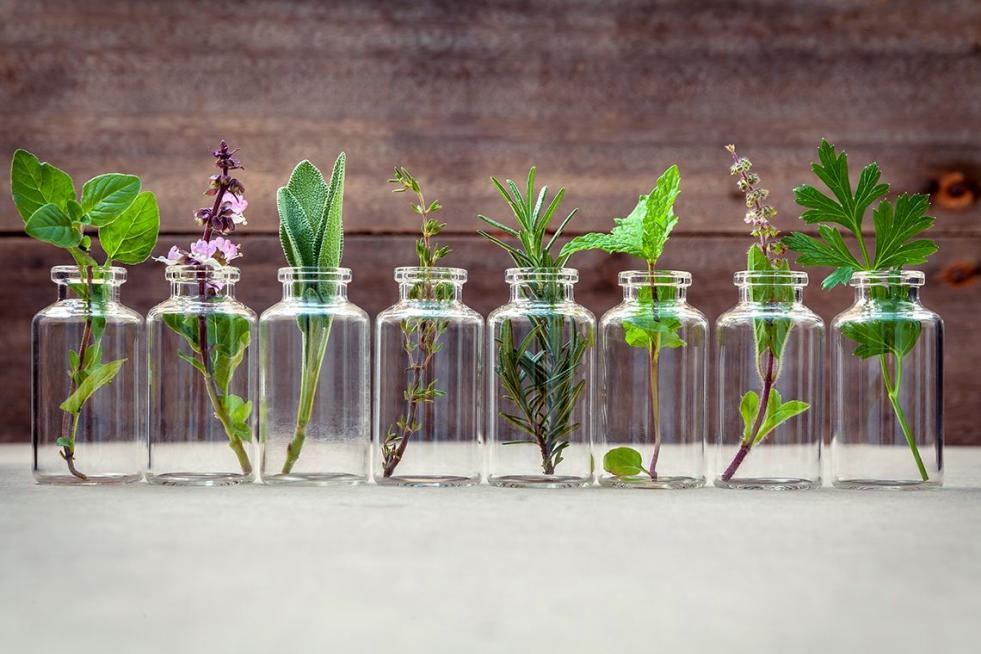
Essential Oils & Herbs have been used in ritual to promote health & remedy ills since antiquity.
Chronic Stress accounts for 80% of all healthcare problems in the United States. We are seeing a similar trend in other countries like the UK, Germany & Finland to name a few…
Stress can be divided into that which is necessary for survival (acute) and that which will eventually lead to breakdown (chronic).
While there are some upsides to acute stress like increased brain activity, expanded airways & increased blood flow to the organs involved in fighting & fleeing the body isn’t meant to sustain the stress response long term giving way to chronic stress.
NEGATIVE EFFECTS OF LONG TERM STRESS
- cognition & memory issues
- insomnia
- fatigue and/or feeling “wired”
- depression and/or anxiety
- increased inflammation
- poor metabolism, including elevated cortisol and blood sugar, which can lead to diabetes and abdominal weight gain
- slow digestion, indigestion, gas, pain, bloating, irritable bowl syndrome, and/or constipation
- reduced cardiovascular health, including risk of stroke, high blood pressure, and cortisol levels
- decreased libido and impaired reproductive health and function
- decreased detoxification
- slower, less adequate digestion and elimination
- decreased immune function
- slower, less effective wound healing and reduced connective tissue integrity
Americans are realizing that our current allopathic medical system – its approach and its medicines – often makes us sicker (not to mention broke) in the long run. In this profit driven system, we spend more on health care than any other nation, yet we come in at a dismal number 38 worldwide for our actual health and well-being. Doctors rely heavily on an arsenal of pharmaceuticals, but side effects from these strong drugs kill more than 100,000 Americans annually.
Maria Noel Groves
Americans are realizing that our current allopathic medical system – its approach and its medicines – often makes us sicker (not to mention broke) in the long run. In this profit driven system, we spend more on health care than any other nation, yet we come in at a dismal number 38 worldwide for our actual health and well-being. Doctors rely heavily on an arsenal of pharmaceuticals, but side effects from these strong drugs kill more than 100,000 Americans annually.
Aromatherapy is a simple, safe, cost effective method that can reduce both acute & chronic stress.
DIFFERENT AROMATHERAPY PRACTICES
There are different approaches to aromatherapy. The oldest use on record is with the Ancient Egyptians. They used essential oils & parts of plants for therapeutic, cosmetic & ritual purposes. In that time, the use of these medicinal plant essences was reserved for priests & rulers.
Pure essential oils played an important role in Egyptian ceremonies; they were used to purify the air in liquid and incense form or as sacrifices to the gods. The scented essences were used for medical purposes in the form of baths, perfumes, massage oils, or as a medicine. They were popular for use as cosmetics when incorporated into salves or pastes. In Ancient Egyptian mythology – Nefertem – is the god who protected perfumes, salves and anointing oils.
We can find the British focusing mainly on using diluted essential oils applied to the skin via massage for treatment. With the French going the undiluted route directly on the skin to combat infection. The French also may give gelatin capsules containing essential oils diluted in carrier oils or gel to be taken orally. In France essential oils are used to treat infection or a chronic condition and are rarely used just for relaxation.
The practice of Aromatherapy could be seen as part of the larger field of herbal medicine, since the essential oil is only one of many ways in which a plant can be prepared as a remedy
Julia Lawless
The practice of Aromatherapy could be seen as part of the larger field of Herbal Medicine, since the essential oil is only one of many ways in which a plant can be prepared as a remedy.



HERBS FOR STRESS SUPPORT
The adaptogen kingdom is the stress managing center in herbalism. Adaptogenic herbs help your body to adapt to stress, mainly by supporting the production of stress related neurotransmitters and hormones. Do observe safety cautions before use or consult an herbalist.
Stimulating Adaptogens: reach for these when the body is depleted, deficient, dragging & depressed.
Ginseng
Eleuthero
Rhodiola
Codonopsis
Jiaogulan leaf
Cordyceps
Balancing Adaptogens: reach for these when you need energizing & calming as they are useful for both.
Ashwagandha
Schizandra
Calming Adaptogens: reach for these when you’re in need of calming & anxiety relief.
Holy Basil
Gotu Kola
We invite you to visit a few of our favorite herb sellers – Upful Blends, Sacred Vibes Apothecary, Pura Luna Apothecary.
WAYS TO USE HERBS
- Tea – diffusing your herbs in tea is the easiest and most common way to partake in herbal medicine
- Cooking – in soups or sprinkled directly on dishes to which the flavor is synergized
- Tinctures & Tonics – are also called liquid extracts this is where the plant matter or herbs are soaked in a liquid base – alcohols, water, vinegars, glycerites etc – to absorb the properties of the plant into the liquid for more potent consumption
- Powders – finely cut or sifted herbs can be consumed in foods or capsules
ESSENTIAL OILS FOR STRESS SUPPORT
This is a moderate list as there are many to assist us with stress & nervous tension. Do observe safety data/cautions before use or consult an aromatherapist.
- Angelica
- Basil (French)
- Copaiba
- Bergamont
- Cardamon
- Cedarwood (Atlas, Texan & Virginian)
- Chamomile (Germain & Roman)
- Clary sage
- Elemi
- Frankinsense
- Geranium
- Hyacinth
- Jasmine
- Lavender
- Lemongrass
- Lemon Verbena
- Mandarin
- Majoram (sweet)
- Mint (peppermint & spearmint)
- Orange
- Patchouli
- Pine (scotch)
- Rose (cabbage & damask)
- Rosemary
- Sandalwood
- Valerian
- Vetiver
- Violet
- Ylang Ylang
WAYS TO USE ESSENTIAL OILS
- Inhalation via diffusing, aromasticks, essential oil scented home sprays, and body products
- On the skin via massage or body care
- Internally – at the direction of a certified aromatherapist
- Externally – at the site of injury or infection at the direction of a certified aromatherapist
Did you know some essential oils can also be adaptogenic in function having a balancing or normalizing effect on the body systems? These oils can be sedative or stimulating depending on the individual. Oils in this category are geranium, rosewood, bergamot, melissa, lemon, jasmine, ylang ylang & neroli.
Our Stress Relief Blends are an excellent choice to get your aromatherapy on while taking care of your skin, scalp & hair. Our Air Purification blends are perfect for this use as well.
Anoint your temple daily & elevate your well-being.
Sources: The Encyclopedia of Essential oils by Julia Lawless
Body into Balance – An herbal guide to holistic self -care by Maria Noel Groves
Clinical Aromatherapy -Essential Oils in Healthcare by Jane Buckle, PhD, RN


